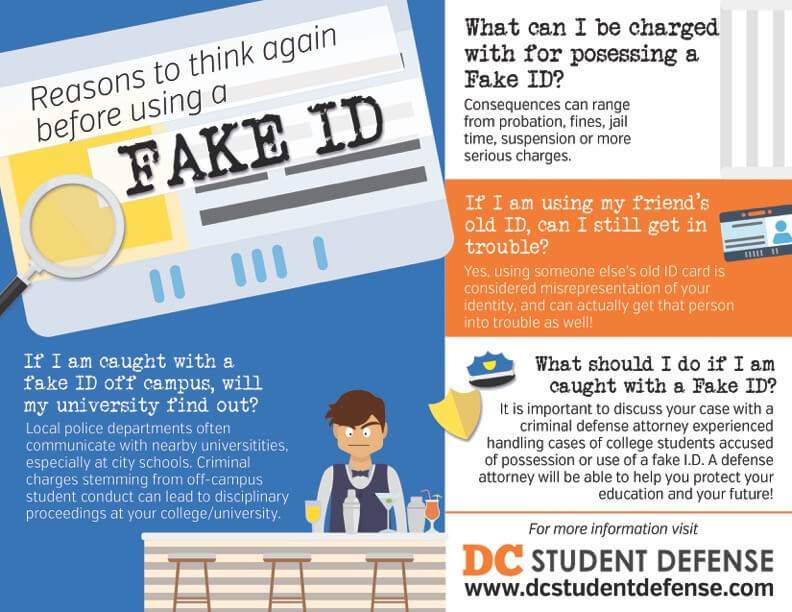It’s not strange to think that most college students have had a fake ID at some point before turning twenty-one. College students don’t want to feel restricted from happy hours, unlimited mimosa brunches, or even nightlife festivities. So instead, they pay hundreds of dollars to a stranger hoping they will receive high quality IDs, or they go to great lengths to find older friends who they look like, even if that only means sharing the same color hair, and ignoring an eight-inch height difference.
After going through the hassle of finding a suitable fake ID, most students never truly contemplate that you could get into legal trouble. I’ve certainly heard embarrassing tales of people getting rejected from bars because their ID is far from passable, bouncers taking IDs, or even a campus police officer finding a fake ID after locating a lost wallet. But what you almost never hear of is someone being arrested and charged for attempting to use a fake ID. But it can happen, and students should be prepared to handle a serious situation as best they can.
Memorizing the date of birth, address, and zodiac sign may not be enough to get you through the door. So what do you do if you’re one of the unlucky ones caught using a fake ID?
First thing- DO NOT lie to the police. Once you have been caught, trying to pass your fake off as a real ID is not a good idea. You can’t talk your way out of this situation so it’s best to be polite and courteous. Something that could be a slap on the wrist can turn into something a lot more serious if you start lying and arguing with law enforcement, attempting to convince them that your fake is a real ID.
Next, hire an attorney! Even if you think you’re not facing serious repercussions, err on the safe side and find someone who has dealt with fake ID charges. You need to know what could happen to you legally if you’re caught using a fake ID.
Finally, take time to understand what the crime is and the possible repercussions. What you are charged with depends on the circumstances of your violation. Most of the time, students can be charged with a misdemeanor for possession of a fake ID. Misdemeanors indicate a less serious crime and can include up to a year in prison and a fine. This is the most common charge if you’re caught attempting to buy alcohol or attempting to get into a 21+ bar. However, if you were caught manufacturing and distributing IDs the charge can be more serious. An attorney can help you sort through this entire process, and keep you informed of your best options.
So you might be wondering what type of attorney is best for you?
Hiring someone who has experience with student disciplinary defense is a great idea. Local DC law enforcement consistently updates universities about pending charges. So, you might also be facing student disciplinary charges for possessing a fake ID. These types of violations are completely different than legal repercussions, and the punishments can range from a mandatory class, to suspension or even expulsion, depending on the circumstances of your violation.
Bottom line? Fake IDs aren’t worth the potential trouble they could get you in. And if you do find yourself caught up in a bad situation because you got caught with one, make sure you have an attorney you can trust to help guide you through a tricky process.





